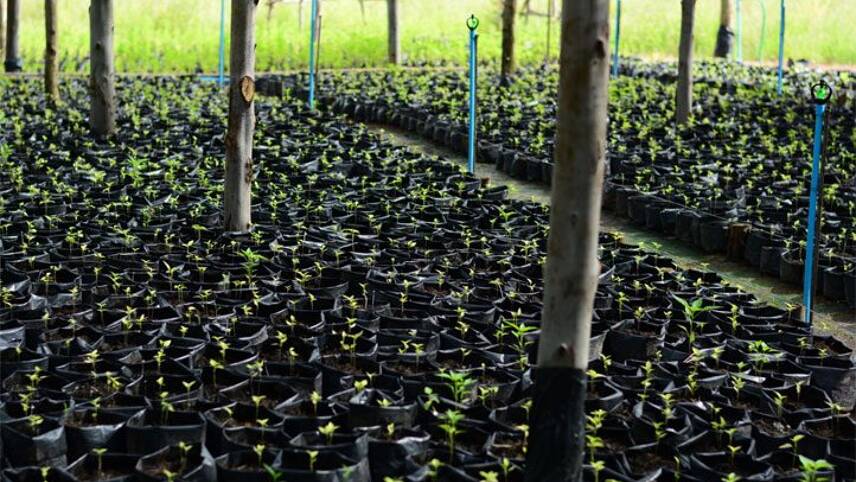Register for free and continue reading
Join our growing army of changemakers and get unlimited access to our premium content

Almost two-thirds of Brits (64%) think governments and businesses aren’t doing enough to leave a green legacy for future generations, according to research we conducted earlier this year. As a charity dedicated to reversing woodland decline, we know that the regeneration of natural landscapes is a key part of fighting the climate crisis as well as our biodiversity crisis, and while organisations like ours are taking steps to address this need, it’s the corporate world, with all its influence and financial might, that can really help shift the dial.
This Earth Day, on 22nd April, we asked businesses to consider how they can help regenerate the UK’s precious forests and natural landscapes through their Environmental, Social and Governance (ESG) efforts. Supporting forests is about so much more than just carbon offsetting via tree planting initiatives, which is why we have developed a set of principles called ‘Here for Life’ which focus on actions to protect and enhance the full range of biodiversity and life within our woodlands. By using these principles as a guide, we and others can ensure our precious forests are established and maintained in a way that helps them thrive to the benefit of generations to come, creating a truly valuable green legacy.
The reality is that, as well as having amongst the lowest percentage of tree cover in Europe, the UK is also one of the most nature deficient countries on Earth. It ranks in the bottom 10% of countries worldwide for biodiversity intactness. Some of our most important wildlife populations have collapsed by 60% in the last 50 years. This isn’t just devastating for the species concerned, but also for us. Animal and insect life form part of the natural ecosystems on which we depend for our survival.
To combat this decline, businesses are invited to take inspiration from the Heart of England Forest’s ‘Here for Life’ principles to support and facilitate forest conservation and make sure they are maximizing the impact of their ESG activities. The first of these principles looks at creating forests that provide biodiverse habitats for all kinds of life. Planting monocultural tree plantations, such as those used for commercial wood production, doesn’t lead to thriving populations of diverse life, which are crucial for keeping nature in balance. A variety of tree populations is vital. But protecting and restoring Britain’s forests must go beyond trees.
ESG schemes should aim to support native animal and plant life through the creation of interconnected habitats. This means connecting patches of forest using green corridors that can include other types of landscapes, like wetlands, meadows, hedgerows, and even organic farmlands. They help protect wildlife by offering migration routes. It’s also important to consider human life, and what sort of spaces will allow people to visit without negatively impacting wildlife populations.
The Heart of England Forest’s second principle is about simultaneously learning from the past and adapting for the future. What is left of Britain’s small pockets of ancient woodland teach us many lessons about how we can help to protect and preserve trees. But we also need to understand that our climate is rapidly changing. We must follow the latest scientific research and plant new forests for the planet of the future, not the one we’re living on now. The selection of tree species needs to be carefully considered – alongside the rise in temperatures and increase in flooding and droughts. Businesses should review any tree planting or offsetting initiatives they are backing to make sure that they are able to demonstrate a lasting positive impact.
The third principle is about thinking globally but acting locally, something many businesses will be familiar with. The reality is that there’s no ‘one size fits all’ approach to tree planting. While deforestation is a global challenge, we must adapt our approach to suit the local habitat, climate, and terrain. Even within the UK, this varies dramatically. In this regard, partnerships between local authorities, local businesses and third-sector organisations are vital.
Lastly, the ‘E’ and the ‘S’ of businesses’ ESG schemes should be aligned to support the creation of natural spaces that are embedded into the fabric of human communities. Too many people have lost touch with nature. And yet, it’s not just somewhere pretty to visit at the weekend. It underpins all life on this planet, including ours. To safeguard the natural world and keep Earth liveable, it’s essential that everyone understands this basic fact.
New and regenerated forests should become the foundation of our collective culture and heritage, so that everyone values nature. To this end, young people should be involved in their creation and preservation from the beginning, as they will be the ones looking after them in the future. This can be realised by business through supporting organisations such as ours that enable conservation volunteering opportunities, activities, events, and education programmes aimed at instilling a love of nature and life in all its glorious forms.
When it comes to the interlinked climate and biodiversity crises, we are on the brink of irreversible tipping points. With our research showing that 93% of Brits believe that it’s important we act now to protect our woodlands and forests, businesses have the potential to not only to lead the way on this, but to bring their staff and customers with them, helping to benefit the business too. Now and in the future, everyone is counting on such positive change.



Please login or Register to leave a comment.